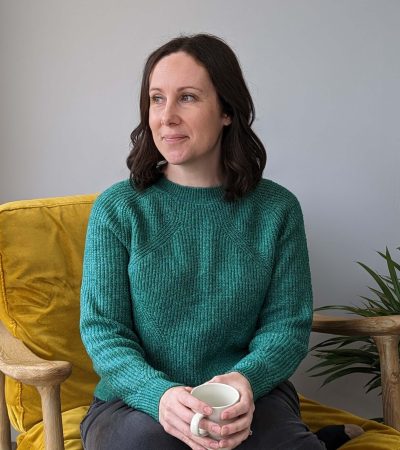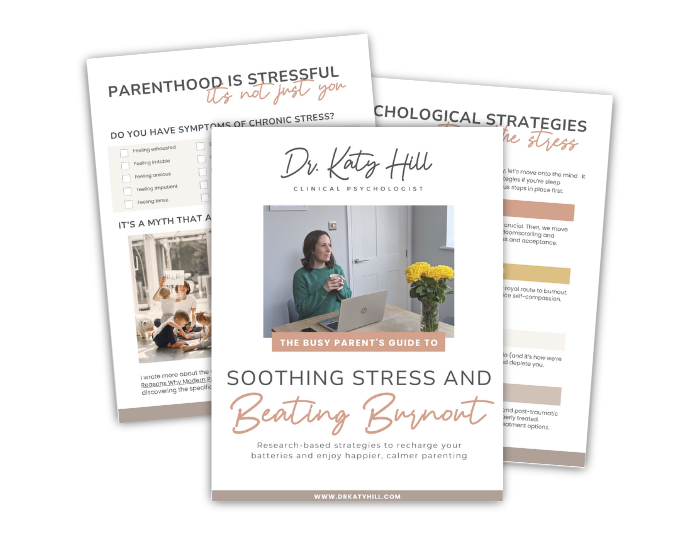Christmas is meant to be a time of joy and connection. But for so many parents, it’s one of the busiest, most stressful times of the year.
In my last blog, The Christmas Survival Guide for Exhausted Parents, I talked about letting go of perfection and doing less. But knowing you should say no is one thing – actually doing it is another.
Setting boundaries at Christmas can feel uncomfortable, especially if you’re used to putting everyone else’s needs ahead of your own (as many parents are). It’s easy to fall into the trap of thinking you’re being selfish or letting people down when you set limits. But boundaries aren’t about shutting people out – they’re about protecting your time and energy so you can truly enjoy the season.
And, this isn’t just for you – it’s for your family too. Because when you’re stretched thin and burned out, you’re not able to give your best to the things and people that matter most.
why setting christmas boundaries feels so hard
Christmas seems to magnify everything. The expectations are higher, the traditions feel more important, and the pressure to make everything magical is relentless.
For parents, it can be particularly tough. We want to create wonderful memories for our children, and that pull is especially strong at Christmas. But when we say yes to everything – every event, every tradition, every request – it often comes at the cost of our own well-being.
Saying no can bring up feelings of guilt or fear of letting people down. But constantly saying yes often leads to exhaustion, resentment, and a sense that we’ve lost the joy of Christmas entirely. Boundaries are what stop that spiral.
how to set christmas boundaries with confidence
Boundaries don’t have to feel harsh or unkind. They’re about recognising what you need and making space for it. Here are some ideas to help:
Get Clear on What Matters
It’s easier to say no when you’re clear about what you’re saying yes to – so, take a moment to reflect on what really matters to you this Christmas.
Which traditions or activities feel joyful and meaningful to your family? And which ones feel stressful, unnecessary, or like they’re just for show?
Write down your top 3–5 priorities for the season and let them guide your decisions. You might decide that baking mince pies together is non-negotiable and you really enjoy Elf on the Shelf but you don’t see the point in Christmas cards or don’t have the energy to attend every festive event organised by work, school and your friends and family.
Plan Your ‘No’ in Advance
When someone asks for your time or energy, it’s easy to feel caught off guard and agree before you’ve had time to think. Preparing what you’ll say in advance can make it much easier to respond confidently.
You could prepare a polite, clear statement that doesn’t leave room for negotiation. Practicing in advance can help them feel more natural when the time comes.
Try something simple, like: “Thanks for inviting us, but we’re keeping things low-key this year.” or “I’d love to help, but I can’t take on anything extra right now.”
Try ‘No, But…’
If saying no outright feels too uncomfortable, offering an alternative can soften the blow and maintain relationships while still protecting your boundaries.
For example: “We can’t make it to the party, but let’s catch up in the New Year.” or “I’m not able to host Christmas dinner this year, but I’d be happy to bring a dessert if someone else is hosting.”
Think of Boundaries as Flexible
Boundaries don’t have to feel rigid or permanent. They can change depending on your circumstances, energy levels, and what you have to give this year.
You might decide that travelling to see extended family isn’t realistic with a new baby, but you’d love to do it next year.
Or you might let go of making a full roast turkey with all the trimmings this year, knowing you can pick the tradition back up if it feels right in the future.
Boundaries aren’t about closing doors forever – they’re about recognising what’s manageable for you right now

The Parental Burnout Quiz
Curious what your own parental burnout score is? Download the free assessment and get your score – plus expert tips on how to reduce it.
MANAGINg guilt when setting boundaries
Even when you know boundaries are important, it’s common for guilt to creep in. Here are some ways to work through those feelings:
Reframe Your Thinking
Instead of focusing on the guilt or fear of disappointing others, shift your perspective to the bigger picture. Think about who or what you’re saying yes to when you set boundaries. Whether it’s creating space for yourself to recharge, spending meaningful time with your children, or protecting your mental health, every ‘no’ supports something valuable. And remember, by setting boundaries, you’re also modelling this skill for your children – showing them how to prioritise their own well-being and say no when needed.
Celebrate the Benefits
After setting a boundary, take time to notice the positive impact it’s had. Reflect on how it’s improved your experience of the season. Maybe saying no to a social event gave you a precious evening at home to relax or spend time with your partner. Perhaps scaling back on gift-giving saved you money and hours of stressful shopping. Acknowledge these benefits, big or small, as they can reinforce the value of sticking to your boundaries.
Practice Makes Progress
The first few times you set boundaries, it might feel awkward or even uncomfortable. Some people may not like it; especially those who’ve benefitted from your people-pleasing tendencies. But with time and practice, it gets easier. Like any new skill, boundary-setting becomes more natural the more you do it. And over time, you’ll start to feel the benefits in your energy, time, and sense of calm.
scripts for common situations
If you’re unsure how to phrase your boundaries, here are some ideas:
For Social Gatherings:
“Thank you for inviting us! We’ve decided to have a quieter Christmas this year, but I hope you have a lovely time.”
For Family Traditions:
“I know this tradition means a lot to you, but we’re doing what works best for our family this year. Let’s plan something together soon.”
For School or Community Obligations:
“I’d love to help, but I can’t take this on right now. Thank you for thinking of me!”
These scripts are simple, respectful, and give you space to prioritise what feels manageable.
it's your christmas, too
Christmas is about family, but here’s something we often forget: that includes you.
Your joy, your rest, and your well-being matter just as much as anyone else’s. You’re not just here to facilitate everyone else’s experience of the season. You’re a person as well as a parent, and your needs deserve space too.
So, what would make Christmas feel good for you? Maybe it’s carving out time to sit by the fire with a book or taking a walk on Christmas morning. Maybe it’s letting go of the pressure to do it all and simply enjoying the small, meaningful moments.
By setting boundaries and protecting your energy, you can create a Christmas that feels calm, joyful, and connected; for everyone.
creating a meaningful christmas
In my Christmas Survival Guide for Exhausted Parents blog, I talked about the importance of doing less, saying no, and letting go of perfection. But knowing you need to set boundaries is one thing – actually doing it is another.
So this blog is a natural follow up to the previous one. We’ve talked about why boundaries are so important and why they’re not selfish. I’ve shared ideas to help you figure out what matters most, set limits with confidence and manage the guilt that can come with saying no.
My hope is that these tools make it easier for you to protect your time and energy this Christmas, so you can focus on the moments and traditions that bring joy and connection to your family.
Because boundaries aren’t about being selfish or shutting people out – they’re about creating space for a Christmas that feels calmer, happier, and truly special for everyone, including you.
need help managing stress?
If you’re looking for more support, check out my free resource, The Busy Parent’s Guide to Soothing Stress and Beating Burnout. It’s full of practical, evidence-based strategies to help you navigate the challenges of parenting with less stress and more balance.








